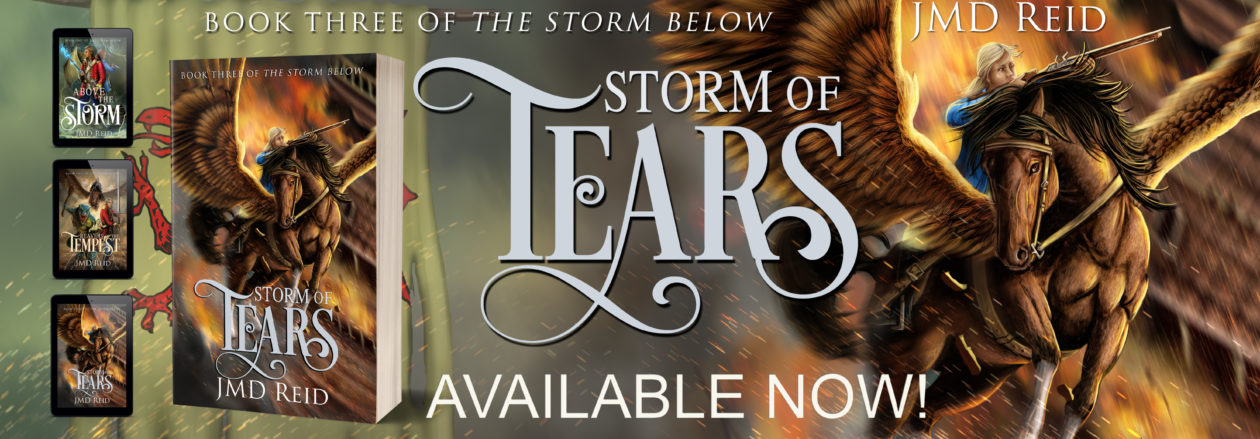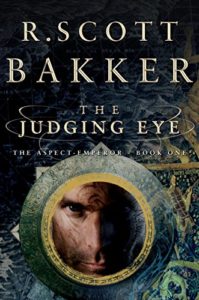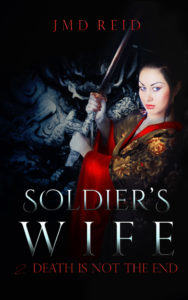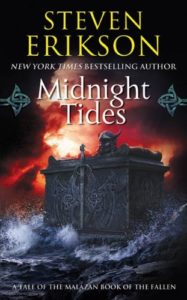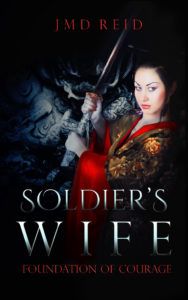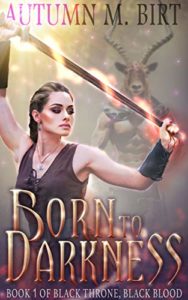Reread of The Aspect-Emperor Series
Book 1: The Judging Eye
by R. Scott Bakker
Chapter Four
Hûnoreal
Welcome to Chapter Four of my reread. Click here if you missed Chapter Three!
For He sees gold in the wretched and excrement in the exalted. Nay, the world is not equal in the eyes of the God
—SCHOLARS, 7:16, THE TRACTATE
This is about the subject view on who is and isn’t saved. It echoes the sentiment from Christianity that it is easier for a camel to go through the eye of a needle than a rich man to get into heaven. To Christians, this is a statement that material possessions are a path into sin because you focus on them and not putting God first. Bakker’s scripture is saying that it is better to suffer than to be praised. That pain in this life brings reward in the next while those who take glory in this world are in for a surprise. It echoes another Christian teaching about salvation in that doing good deeds to earn salvation is offensive to God like soiled menstrual rags, I believe, is how the translations often go.
In Bakker’s universe, damnation is something seen and judged. This is our first allusion to the title of the book and Mimara’s ability. Fittingly, it is her POV that starts off the chapter and her first unveiling of this power.
Early Spring, 19 New Imperial Year (4132 Year-of-the-Tusk), southwestern Galeoth
Mimara has no choice but to camp by Achamian’s tower. Where will she go? The brothel? Her mother’s palace (which is like a brothel)? She doesn’t tether her mule, Foolhardy, hoping he will wander free and escape then fearing that he’ll be eaten by wolves at night because of her carelessness. So far, he’s still there when she wakes up. As the days past, she tends her fire, thinking its “singularity of purpose” is divine.
Flare. Wax. Consume.
Like a human. Only with grace.
The children, learning she’s a witch, spy on her and gives fake screams of fright when she spots them. She is a witch because she can see the Wards that Achamian has put around his tower as well as the bruises to the world his violent defense of the valley against the Sranc had left. “The eyes of the Few were with her always, prodding her onto this path she has chosen, fortifying her resolve.”
But more and more the different eye seems to open, one that has perplexed her for many years—that frightens her like an unwanted yen for perversion. Its lid is drowsy, and indeed it slumbers so deep she often forgets its presence. But when it stirs, the very world is transformed.
For moments at a time, she can see them… Good and evil.
Not buried, not hidden, but writ like another colour or texture across the hide of everything. The way good men shine brighter than good women. Or how serpents glow holy, while pigs seem to wallow in polluting shadow. The world is unequal in the eyes of the God—she understands this with intimate profundity. Master over slaves, men over women, lions over crows: At every turn, the scriptures enumerate the rank of things. But for terrifying moments, the merest of heartbeats, it is unequal in her eyes as well.
She believes this “judging eye” is a madness brought on by what happened to her. “It has to be madness.” She wonders what Achamian will look like. She stares at his tower in the morning sun and thinks it’s not so tall. It’s height an illusion.
The world hates you…
This thought afflicts her when she least expects it. She knows this truth and didn’t need her little brother to remind her: “It hurts Momma to even look at you! She wishes she would have drowned you instead of sold you…” As she starves outside Achamian’s tower, she believes this more and more. She traveled all this way to be a witch and is denied.
There is no other place. So why not cast her life across the Whore’s table? Why not press Fate to the very brink? At least she will die knowing.”
She cries though she feels empty. She sees “the Wizard” pacing in his window. She can’t remember when she had cried and felt the emotion. She thinks maybe as a child. She stays because she has nowhere to go. All her choices are the same. Despair lies in all directions.
A broken tree, as her brothel-master once told her, can never yield.
Two days became three. Three become four. Hunger makes her dizzy, while the rain makes her clay-cold. The world hates you, she thinks, staring at the broken tower. Even here.
The last place.
One night, he appears, haggard like he hadn’t slept because of guilt. He has food and wine. She devours it like a “thankless animal.” He watches her and mentions Dreams like they are an old enemy he’s long fought. As she eats and stares at him, he speaks of his Dreams and what it’s like. She finds herself asking the lame question if they’re bad. In the firelight, she can see that though he’s suffered much, he still remembers how “to be tender and honest.” He answers her with a wink then fills a pipe and lights it. He tells her the dreams used to be. That confuses her. He then asks her why Mandate Schoolmen have the dreams.
She knows the answer. Her mother always resorted to talk of Achamian to salve the abrasions between her and her embittered daughter. Because he was her real father, Mimara had always thought. “To assure the School of Mandate never forgets, to never lose sight of its mission.”
“That’s what they say,” Achamian replies, savoring the smoke. “That the Dreams are the goad to action, a call to arms. That by suffering the First Apocalypse over and over, we had no choice but to war against the possibility of the Second.”
Achamian disagrees and says that her adopted father, Kellhus, is right that every life is a riddle that can be solved. He knows this to be a truth before telling her about the First Holy War and his “forbidden love” for Esmenet. He’d been willing to risk the World to have her. He is open and vulnerable with her, making it compelling. She’s heard this story before, but listens with “childish attentiveness,” letting herself feel his emotions. During it, she realizes that he doesn’t know that his love for Esmenet is a story told around the empire.
The only secret is that he still lives.
With these thoughts her wonder quickly evaporates into embarrassment. He seems over-matched, tragically so, wrestling with words so much larger than himself. It becomes cruel to listen as she does, pretending not to know what she knows so well.
“She was your morning,” she ventures.
This interrupts him, and he gets angry, glaring at her. He asks her to repeat it. And she does, explaining how Esmenet told her about what she meant to him. He then says he no longer fears the night because he doesn’t have the same Dreams as other Mandate Schoolman.
“I no longer pray for the morning.”
She leans back to pluck another log for the fire. It lands with rasping thump, sends a train of sparks twirling up through the smoke. Watching their winking ascent to avoid his gaze, she hugs her shoulders against the chill. Somewhere neither near nor far, wolves howl into the bowl of the night. As though alarmed, he glanced away into the wood, into the wells of blackness between the variant trunks and limbs. He stares with an intensity that makes her think that he listens as much as he hears, to the wolves and to whatever else—that he knows the myriad languages of the deep night.
It is then that he tells his tale in earnest…
As though he has secured permission.
Achamian thinks about how Esmenet, after his capture by the Scarlet Spire, had waited for him like Mimara had. He hadn’t come to see the girl out of anger, not wanting to reward her. He did it out of ear not wanting to be caught with missing Princess-Imperial. That he was doing her a favor because she was too old to learn the Nonman tongue to use magic. He used every excuse to hid from his pain.
Her mother, Esmenet, had waited for him on the banks of the River Semis over twenty years previous. Not even word of his death could turn her from her vigil, so obstinate, so mulish was her love. Not even sense could sway her.
Only Kellhus and the appearance of honesty.
Achamian recognizes Esmenet’s stubbornness in Mimara. How else could the girl have traveled so far alone? He finally realized he had to tell her the truth because she would die and he’d be destroyed by guilt. So he came with compassion and food and told her everything, including how his dreams had started changing. It had been twenty years since he spoke without issue. He explains how while the Mandate dream about Seswatha, they don’t witness the normal, day to day stuff. “‘Seswatha’ the old Mandate joke goes, ‘does not shit,’”
All the things that were forgotten, he realized.
The dreams took on new a character, subtle at first. Achamian merely thought it was his change in perspective. Achamian dreamed of Seswatha stubbing his toe to fetch a scroll. Mimara, as he speaks, stars at him the way Esmenet had. “Another abject listener.” He can’t read her, but she’s letting him speak. He explains how he was flabbergasted upon awakening. It wasn’t anything profound. He brings up how the Mandate have cataloged the variation of all the dreams. They could misfire, playing things out of order or corrupted. More than a few Mandate had become obsessed with them, thinking they found some greater truth. But they never could convince anyone else. So Achamian writes off the dream as his own. For two months, he dreamed the usual things, then he has one of Seswatha reading a scroll.
He trailed, though whether to let the significance settle in or to savour the memory, he did not know. Sometimes words interrupted themselves. He pinched the hem of his cloak, rolled the rough-sewn seam between thumb and forefinger.
Achamian notices how Mimara finishes off her gruel like a slave would before she asks what the scroll was. He says it’s a lost scroll by Gotagga. Parapolis. It’s famous. Mimara asks if Achamian invented it. He doesn’t think so. He wrote down what he remembered and it was far better than he could write. It proved they were real. He remembers that morning and the heady feel or realizing “he had begun dreaming Seswatha’s mundane life.” No other Mandate Schoolman had.
How strange it had been, to find his life’s revelation in the small things; he who had wrestled with dying worlds. But then the greater turned upon the small. He often thought of the men he’d known—the warlike ones, or just the plain obstinate—of their enviable ability to overlook and to ignore. It was like a kind of willful illiteracy, as if all the moments of unmanly passion and doubt, all the frail details that gave substance to their lives, were simply written in a tongue they couldn’t understand and so needed to condemn and belittle. It never occurred to them that to despise the small things was to despise themselves—not to mention the truth.
But then that was the tragedy of all posturing.
She asks why this happened. Why him. He has no idea, maybe Fate is fucking with him or maybe he’s gone mad, “for one cannot endure what I’ve [Achamian has] day and night without going mad.” Maybe since he’s abandoned his life, a new one filled it or Seswatha is reaching out to him. He comports himself and says there is a bigger question. He stares at her, watching her even while knowing he must appear as a bitter, old man.
But if there were judgment in her eyes, he could detect nothing of it.
“My stepfather,” she said. “Kellhus is the question.”
This makes him realize that she’s not ignorant of much of what he’s been talking to. She knew Kellhus personally. She’s his stepdaughter. It hadn’t clicked in his mind and he feels like an idiot for how obvious it was. Then he wonders why she came here. Did Kellhus send her even if she doesn’t know it? Is she a spy? Kellhus had seduced the Holy war. Mimara stood no chance.
How much of her soul was hers, and how much had been replaced?
Achamian asks if Kellhus sent her. She looks confused and bewildered. She says he’d drag her home in chains and return her to her mother. Achamian persists. She’s crying as she protests she’s not lying.
“This is the way it works,” Achamian heard himself rasp in an utterly ruthless voice. “This is the way he rules—from the darkness in our own souls! If you were to feel it, know it, that would simply mean there was some deeper deception.”
“I don’t know what you’re talking about! He-he’s always been kind—”
“Did he ever tell you to forgive your mother?”
She’s confused by that. He asks if he ever knew her heart better than she did. She says he had, not sure why it matters. He asks her if she felt awe in him. Saw him as more than a man. Did his attention make her feel gratified? Achamian is manic, shaking, frightening her. She calls him Akka, sounding to him like her “whore-mother.”
“When you stood before him!” he roared. “When you knelt in his presence, did you feel it? Hollow and immovable, as if you were at once smoke and yet possessed the bones of the world? Truth. Did you feel Truth?”
“Yes!” she cried. “Everyone does! Everyone! He’s the Aspect-Emperor! He’s the Saviour. He’s come to save us! Come to save the Sons of Men!”
Achamian stared at her aghast, his own vehemence ringing in his ears. Of course she was a believer.
“He sent you.”
Her presence returns him to the mindset of being in the First Holy War. In her eyes, he sees hope dying, like it had to him. When he approached her, she’d weakened, dared to believe finally something good would happen to her, and he’d snatched it from her. He believes she’s not a willing slave now and is reminded of Cnaiür who had “a soul at once strong and yet battered beyond recognition.” He sees Esmenet in her.
She was precisely the kind of slave Kellhus would send him [Achamian]. Part cipher. Part opiate.
Someone Drusas Achamian could come to love.
Achamian talks about the day Kellhus arrived at the Holy War. How Achamian was there. Kellhus had been a beggar claiming to be a prince with a Scylvendi. “It was my back he broke climbing to absolute power,” Achamian tells her. He goes on how Kellhus was his friend, his student, and how Kellhus stole his wife anyways. His morning. He dares her to speak now and she stays silent.
“The only thing,” he continued, his voice wrung ragged with conflicting passions. “The only thing I took with me from my previous life was a simple question: Who is Anasûrimbor Kellhus? Who?”
Achamian stared at the bed of coals pulsing beneath the blackened wood, paused to allow Mimara fair opportunity to respond, or so he told himself. The truth was that the thought of her voice made him wince. The truth was that his story had turned into a confession.
Mimara gives the obvious answer to his question: Kellhus is the Aspect-Emperor. Achamian isn’t surprised. Anyone, let alone Kellhus’s adopted daughter, would give this answer. People wanted things to be simple. They would mock questions “for fear it would make their ignorance plain.” Then they would claim to be open.
This was the iron habit of Men. This was what shackled them to the Aspect-Emperor.
He shook his head in slow deliberation. “The most important question you can ask any man, child, is the question of his origin. Only by knowing what a man has been can you hope to say what he will be.” He paused, brought up short by an old habit of hesitation. How easy it was to hid in his old pedantic ruts, to recite rather than talk. But no matter how woolly his abstractions always became snarled in the very needling particularities he so unwittingly tried to avoid. He had always been a man who wanted to digress, only to find himself bleeding on the nub
She gives the official answer, that Kellhus is “the Son of Heaven” as if it were the only one that could be. Achamian points out he’s a real person with parents born like anyone else. Where did that happen? She brings up Atrithau, but he cuts her off and says that Cnaiür, a dead man, told him. A memory of Cnaiür’s conversation, his warning on how Dûnyain “war against circumstances” and see men as dogs to be tamed. How they use love to control. The Dûnyain are Kellhus’s people.
She asks about his bloodline, and Achamian says he is an Anasûrimbor, the only clue to where he’s from. Where had that kingly family survived? She asks where else besides Atrithau since the North is ruined. The Sranc rule it. He says the Kûniüric High Kings must have created a refugee, something Cnaiür had mentioned in their conversation. Hidden in the mountains. Isolated for a thousand years so they could breed themselves into something better than world-born humans.
As he talks about the sanctuary, Achamian knows he sounds desperate to be believed even as he struggled to control how fast he gives Mimara the information. However, when calling the Aspect-Emperor a liar, their words never could come out slow enough. Mimara has gone blank, hiding her offended beliefs. Achamian thinks she sees him as a bitter cuckold railing against the better man who’d taken his wife and now paints a story with himself as the hero.
He breathed deeply, leaned back from the fire, which suddenly seemed to nip him with its heat. He resolved to refill his pipe, but he could only clench his fists against the tremors.
My hands shake.
Mimara watches Achamian as his voice grows shriller, his gestures wilder. At first, she was excited, but then she realizes he’s not free at all, but bound by the past. He’s not speaking to her, either, but to her mother. The irony that he mistakes her for her mother after she mistook him for her father hurts her. She realizes he’s more her brother, another person hurt and betrayed by Esmenet.
Mimara realizes she’s been wrong about him. Her imagination the opposite of reality. He lives only for vengeance against Kellhus. He’s ranting about how keeping Cnaiür alive was Kellhus’s mistake. The Scylvendi knew too much about Kellhus’s past. So now Achamian is using his mutated Dreams to get his vengeance. He’s spent twenty years sifting through Seswatha’s life to find what he needed.
It’s more than a fool’s errand; it is a madman’s obsession, on par with those ascetics who beat themselves with strings and flint, or who eat nothing but ox-hides covered in religious writings. Twenty years! Anything that could consume so much life simply has to be deranged. The hubris alone…
His hatred of Kellhus she finds understandable, though she herself bears no grudge against her stepfather. She barely knows the Aspect-Emperor, and those fare times she found herself alone with him on the Andiamine Heights—twice—he seemed at once radiant and tragic, perhaps the most immediate and obvious soul she had ever encountered.
“You think you hate her,” he once said—referencing her mother, of course.
“I know I do.”
“There is no knowledge,” he had replied, “in the shadow of hate.”
She ponders those words and sees how Achamian has focused everything in his life towards unmasking Kellhus. His Dreams and his Hatred. If you can’t get your revenge, it devours you which only feeds your outrage at the source. She sees Achamian as the same as her.
She asks if he’s found what he’s been searching for in the dreams. He’s found a name, sounding embarrassed because it sounds so paltry compared to his boasts about his work. She nearly laughs, earning a bitter glare.
She reminds herself to take care. Her instinct, given all that she has endured, is to be impatient with the conceits of others. But she needs this man.
He says the name: Ishuäl. It’s almost a whisper. He explains it means ‘Exalted Grotto’ or ‘High Hidden Place’ in a Nonman dialect. She asks if that’s where Kellhus is from and sees it disturbs him when she speaks Kellhus name with familiarity. He is certain, however. She asks how he can find it. He says he’ll know soon. More and more of Seswatha’s life is opening to him. He’s getting the secrets.
A life spent mining the life of another, pondering glimpses of tedium through the lenses of holy and apocalyptic portent. Twenty years! How can he hope to balance the proportions? Grub through dirt long enough and you will prize stones.
“Like he’s yielded,” she forces herself to say.
Achamian says that’s just what it likes. He speaks as if Seswatha knows it and is helping him. She can’t imagine what sort of drive it would take to spend twenty years researching this. She doesn’t think any sane person could have such conviction and perseverance.
Faces. All conduct is a matter of wearing the appropriate faces. The brothel taught her that, and the Andiamine Heights simply confirmed the lesson. It’s as though expressions occupy various positions, a warning here, a greeting there, with the distance between measured by the difficulty of forcing one face from the other. At this moment nothing seems so difficult as squeezing pity into the semblance of avid interest.
She asks him again if no other Mandate’s had this happen. He says no and asks her what it means. She’s shocked and offended that he’s showing weakness. At that point, the Judging Eye opens, though she doesn’t know what this is. She sees more than the Mark on him. She sees the “hue of judgment, as though blessing and condemnation have become a wash visible only in certain kinds of light.” He bleeds evil. Damnation.
He is damned. Somehow she knows this with the certainty with which children know their hands. Thoughtless. Complete.
He is damned.
The Judging Eye closes and he’s just Achamian again. She feels great sorrow for this once strong man who is now a wreck. She knows, thanks to the brothel, that a madman needs to be believed. She tells him he’s a prophet from the past and leans in to kiss. “Her whole life she has punished herself with men.”
The memory of his power is like perfume.
After they have sex, they both regret it. She feels lonely as he sleeps beside her, wondering why that should be. She crawls to the fires, wrapped up in blankets, and tries to forget what they did. When he touches her shoulder, giving her kindness, she starts to cry.
“We have made our first mistake together,” he says, as though it were something significant. “We will not make it again.”
The forest is silent and suddenly she can’t stand it and sobs out, asking if she’s broken. If that’s why she runs. He says everyone carries silent burdens that bend them. She throws that back in his face, even as she hates herself for calling him broken. His hands stay on her in a comforting manner, though. He tells her he needs to find the truth more than for his hatred. She asks what difference does it make, and he’s shocked to learn the Great Ordeal has marched for Golgotterath. In a year, the Consult will be destroyed. Already, Sakarpus has already fallen.
Silence. Remorse comes crashing in.
Can’t you see? Something shrikes in her. Can’t you see the poison I bring? Strike me! Strangle me! Pare me to the core with your questions!
But she laughs instead. “You have shut yourself away for too long. You have found your revelation too late.”
My Thoughts
Why is the palace like a brothel? It’s a place where people are seen as objects. As things to be used and manipulated. As the Empress’s daughter, she would be seen as a valuable piece to be claimed as a wife. As an ear to her mother. As a wedge against a political rival. The brothel is, at least, honest.
Flare. Wax. Consume. Be energetic, get tired, and then eat food before you do it all over again. Life reduced to its most basic and honest form.
Unlike the Judging Eye, seeing sorcery’s mark on the world never goes away.
We get our first description of the Judging Eye and what our opening epigram is about: in this world, things are not equal. Men are seen as better than women. Why? I think it’s belief. The Outside exists so long as enough souls on this planet believe in it. That’s why the Inchoroi and the Consult want to depopulate it. To destroy this extra-dimensional realm that is being fed upon by the psyche of intelligent beings. Nonmen are evil because the majority species on this planet believe it. Whatever effect the Nonmen had on the Outside is gone. They’ve been depopulated. It’s all human now. Men think they’re better than women, which is a common thing we’re shown as a great evil in this series.
Bakker is accused of misogyny, but the whale room is his greatest condemnation of women being used as objects. The Dûnyain, who prized intellect above all others, who wanted to breed themselves into perfect beings, realized that the sex differences between women and men made it necessary to turn their women into better breeders. They destroyed their women because they had no emotions.
They did it through logic.
Then you have the other end. The Inchoroi. They are all about sex but don’t care about its biological purpose. Just the pleasure. They are all just men looking to rut with whatever holes they can find. They have a thousand words for ejaculate. Tells you a lot of their priorities.
Esmenet is the perfect person to show the flaws of these beliefs. An intelligent woman denied any chance to use it, forced to sell her body, even her own child, to survive. Achamian came close to treating her as an equal. Considering their culture, he went far beyond what’s normal. Kellhus used this to seduce her by respecting her and feeding her knowledge. However, his logic still led to the same position: she became a breeder for him.
How can Mimara ever heal and find resolution with her relationship with Esmenet when she has Kelmomas poisoning the well, polluting her thoughts with lies? We’ve seen Esmenet’s POV. We know the greatest mistake she’s ever made was selling her daughter.
A broken tree can never yield. A tree yields to the wind that blows past it, bending and swaying. To the forces of nature until those forces are too much and it breaks. The trunk collapses. Then it just lies there, unable to do anything. Unable to yield because it has collapsed. Is this what Bakker means? Maybe.
Reading this section of Mimara is something I can relate to. That feeling of helplessness. That nothing matters so why do anything. Just like you’re in a pit and will die because no one cares about you to come look for you. No one will miss you. Why even bother trying to escape? It takes too much effort. Just lie there and let it end.
Poisonous thoughts. The loss of hope is crippling.
Achamian says he no longer prays for the morning, and yet he just spent all this time talking about what Esmenet meant to him. What he was willing to give up for her. He would have condemned the world if it meant having the woman he loved. He isn’t over her at all. He is, after all, still trying to prove that Kellhus is not what he says. To find proof that he’s lying about salvation for sorcerers and even for Esmenet. That the Great Ordeal isn’t what he claims.
I don’t know about you, but I have dreamed of invented books before. I once heard you can’t read in dreams, but that’s not true. I have. Usually, it’s on the eve of a book I’m looking forward to reading coming out. The Wheel of Time books caused me to have them a few times. I’d be so excited to read them, but I could never find the same place in the books and sometimes would frantically be flipping through pages to find it.
The small things of life are where your true self comes out. Not the mask you wear around others, the various roles we all shift through like chameleons. The good employee. The patient friend. The polite cashier. Spouse. Confidant. Adviser. We never fully act our real selves around anyone but modify our behavior because it’s expected or to avoid friction.
And a brutal critic on those who pretend it doesn’t happen. Who project themselves as something more than the truth: they’re no better than any other human being.
Dûnyain influence on people is almost like the Invasion of the Body Snatchers. Only it’s still the person you love who betrays you because of Kellhus. Like what happened with Conphas and Martemus in the last series. Martemus was loyal until Kellhus began whispering. Then he nearly killed Conphas. And Conphas never betrayed Martemus. Conphas never did anything to Martemus that would have prompted a sense of betrayal. It was all Kellhus rewriting his soul.
Making Martemus into a new person.
It’s insidious if you’re trying to war against Kellhus. There’s no test like with the skin-spy. No mark left on the person physically. Not even the Mark.
Mimara, of course, was sent by a Dûnyain. Just not Kellhus. So Achamian is right, but, lucky for him, Kelmomas cares nothing about Achamian. He just needed Mimara to go away. She’s lucky not to be dead.
My theory is that Kellhus expected Achamian to try and find Ishuäl and use the Holy War as cover. I believe that’s why he arranged for the nonman king to be with the Ironsoul and his men. He cut a deal with the nonman erratic to let him relive his past through Seswatha (aka Achamian) in exchange for knowledge. He used that knowledge to send Serwa on an attack on Ishterebinth and secure his flank for the march on Golgotterath. Was Achamian supposed to be killed by the erratic? Was he supposed to find the truth about Kellhus?
I don’t know.
Once Kellhus had achieved his goal of defeating the No-God, he didn’t need to rule everything. Perhaps he was readying for some form of enlightened atheism. To have Achamian began to destroy his own myth after Kellhus achieved his plan. I think Kellhus wanted to close the Outside but not the way the Consult wanted to. Not through genocide. I could be just talking out of my ass here because Kellhus died without giving us any closure on Achamian’s storyline. In the end, Achamian’s journey didn’t change what happened at Golgotterath one bit. It was anticlimactic. Perhaps the point, but it seems like a waste of literary potential.
We’ll have to see how the next series handles it.
Achamian is unburdening himself now. He felt guilty for snatching away Mimara’s hope with his accusation. So even though he fears she is exactly what he dreads, a leash from Kellhus, he can’t help but explain himself. To fall into the Dûnyain trap.
People do not like their beliefs challenged. It causes turmoil. Why go through all that mental effort when you can just get on with your life? Like confronting contradictory information to what is in your core identity. Is it any wonder people hate philosophers. No one likes the status quo being challenged when you’re benefiting from it.
Beyond that, our minds take a lot of energy to operate. Humans burn a lot of calories to have our brains process so much, so our minds focus on important things and don’t like us to waste energy on things that cause it to have to burn more resources.
To understand something, you need to know how it came about. Whether it’s an astronomer studying a new cosmic phenomenon or a farmer trying to eradicate a new weed in his crops. The truth of origin can allow you to both understand something better and then categorize it. Handle it.
To war against it.
“There is no knowledge in the shadow of hate.” Mimara doesn’t hate her mother, she loves her. That is why she’s so hurt. Why she wants to punish her back. She doesn’t want to destroy her mother. Doesn’t despise her. She wants to make her mother bleed so she can find closure on the pain she received from Esmenet. You hate what you don’t know. One of the most successful men in defusing racial hatred is a black man named Daryl Davis. He sat down with members of the KKK, became their friends, and more than two hundred of them gave up their robes. He let them get to know what they hated and find understanding.
Achamian hates Kellhus. Mimara resents her mother.
One of those secrets of Seswatha, like how he’d cuckolded the king and is probably the father of Nau-Cayûti.
“Grub through dirt long enough and you will prize stone.” Value is subjective, after all. What looks like something as common as stone to one person is the material to build something great and vast to another.
Despite her upbringing, Mimara is having trouble hiding her pity for Achamian let alone feeling it. He’s touched her. Reached through her hard, bitter, cynical exterior that she drew around herself to protect her heart from the suffering she received as a child-slave in a brothel.
Interesting that the Judging Eye triggered as she’s judging him for being weak. I’m going to pay attention to its other appearance and see if there’s anything that triggers it, or if it happens at “random.” I put that in quotes because no book has random things in it. An intelligent mind creates a book and while their reasoning may not make sense, an author chooses when to put information in and for a reason.
Mimara has really only learned one way to deal with men. She hates it, but she doesn’t know other ways to get them to give her things. So she once again goes down that path, sensing Achamian’s vulnerability. This is her moment. She could have continued doing this with him, but he does the one thing she can’t take.
He’s kind to her.
Sex is a punishment for her. To willingly do what she’d been forced to do. What she hates. To be the thing she can never escape. He shouldn’t be kind to her, and yet he is.
She feels lonely beside him because she didn’t have sex out of love, out of a desire to truly be with him. She just wanted to get something from him. They had the veneer of intimacy but in fact, it’s not there. So she can’t take any satisfaction from his presence.
Ultimately, Mimara’s problem is that she hates herself. For how she has grown to become exactly what the brothel masters intended: a woman who uses sex to get things from men. And because of that, she wants the world to hate her, too. Her mother. Achamian. She lashes out at them even as she wants to stop. Even as she wants to receive their love. Until she can stop hating herself, she’ll never be able to accept the love of others.
And what Achamian offers her as he holds her face is love. Not sexual love, but that paternal love she came here seeking. He will become her father in truth over their journey, and since we’re in the world of grimdark fantasy, it comes after they had sex and she becomes pregnant with his child.
And with her pronouncement on the Holy War’s march, Achamian is launched into action. He has his quest. His chance to make it to his goal and find the truth. Ultimately, it doesn’t matter. They arrive at the Great Ordeal not caring about the results. They don’t confront Kellhus. He’s never even seen with the Judging Eye. Because we, the readers, don’t need to see Kellhus in that eye. In those final moments, we see what Kellhus’s goals are. Whether or not he’s damned, he’s trying to change things his way. A way that doesn’t see humans suffer more than necessary.
Because, ultimately, he fell in love in his stunted way. He forged an emotional bond to Serwë and Esmenet. He let one of them die for his mission. He couldn’t let the other one. The irony is that this led to his fall. If he never went back to save Esmenet, if he hadn’t spared Kelmomas for her sake, what happened at Golgotterath would have played out very differently.
So what is the point of Achamian and Mimara’s journey? I haven’t read this series since the Unholy Consult came out and know how it ends. It sees these two broken figures reunited with Esmenet both transformed by their journey.
Let’s figure this out together and see if we can piece together what Bakker was intending. Is this another fantasy storyline that ends in failure like all the rest? Probably.
Ultimately, all are protagonists fail. Achamian and Mimara never reveal the truth of Kellhus.
Kellhus never defeats the Consult.
Sorweel never stops the evil emperor and live happily ever after with his princess.
Esmenet fails to protect her children.
But scattered through it is lives and passions, events that have meaning. That resonates. Let’s explore those as we march forward through The Aspect-Emperor.
If you enjoyed this, click here for Chapter Five!
And if you want to help support this blurb, check out my fantasy books on Amazon!
~~~~~~~~~~~~~~~~~~~~
To save the skies, Ary must die!
If you love the works of Brandon Sanderson, Robert Jordan, George R.R. Martin, R. Scott Bakker, and Steven Erikson, then check out my first ever Fantasy novel!
You do not want to miss out on this awesome adventure!
You can buy or burrow Above the Storm today!
